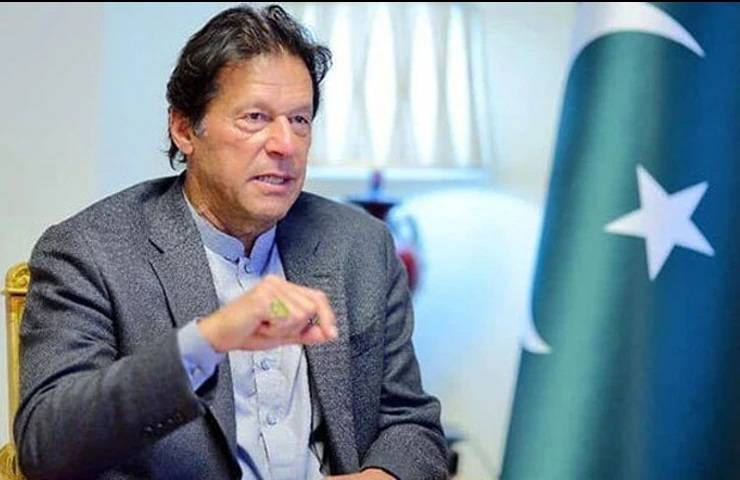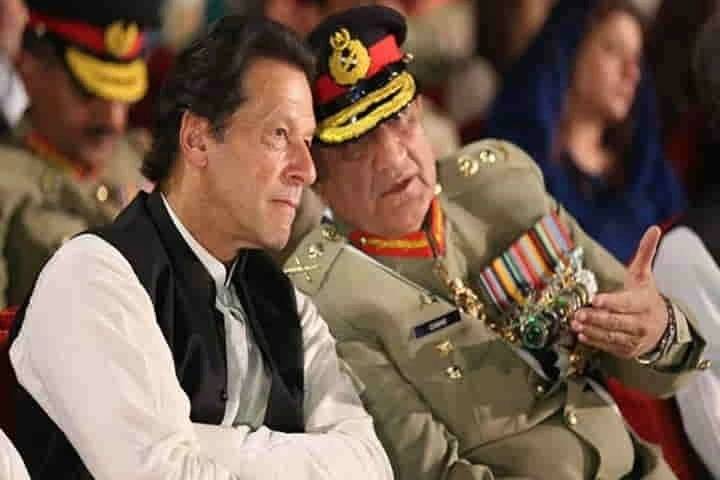
The United States’ State Sponsors of Terrorism designation list describes Pakistan as a “terrorist safe haven” where individual terrorists and terrorist groups are able to organize, plan, raise funds, communicate, recruit, train, transit, and operate in relative security because of inadequate/supportive governance, political will, or both … writes Dr Sakariya Kareem
As the Pak government is facing a no-confidence motion, the problems for Prime Minister Imran Khan have increased with the proposed US bill on designating the country as terror sponsor.
A bill titled “Stopping Pakistani Terror Act” seeking to designate Pakistan as a state sponsor of terrorism was introduced (March 8) in the House of Representatives by the Republican Congressman from Pennsylvania, Scott Gordon Perry.

Scott Perry is a senior member of the House Foreign Affairs Committee. Perry referred to US Secretary of State Antony Blinken who had accused Pakistan of harbouring members of Taliban, including the terrorists of Haqqani network. Till date only four countries have been designated sponsors of terrorism. These include Cuba, North Korea, Iran and Syria.
The bill presented for deliberation in front of United States House Committee on Foreign Affairs would be ultimately passed by the House, the Senate and signed by the President, Joe Biden. As per the bill, “Effective on the date that is 30 days after the date of the enactment of this Act, the Islamic Republic of Pakistan shall be deemed to be a country the government of which the [US] Secretary of State determines has repeatedly provided support for international terrorism.”
In the event of passing of the bill, Pakistan will face multiple sanctions that include restrictions on US foreign assistance, a ban on defence exports and sales, financial transactions and others under multiple Acts, including Export Control Reform Act of 2018, Foreign Assistance Act of 1961 and Arms Export Control Act.
Further, the US lawmakers had written (March 9) to US Attorney General Merrick Garland to investigate the Islamist ties of the newly appointed ambassador from Pakistan, Masood Khan to USA. The three-page letter contains proof showing Khan’s links with terrorist groups, including Pakistan intelligence agency, the Inter-Services Intelligences (ISI). Last year on 29 September, a group of 29 high-profile US Senators also called for an assessment of support that was given by Pakistan to the Taliban.
The United States’ State Sponsors of Terrorism designation list describes Pakistan as a “terrorist safe haven” where individual terrorists and terrorist groups are able to organize, plan, raise funds, communicate, recruit, train, transit, and operate in relative security because of inadequate/supportive governance, political will, or both.
Today one of the reasons that PMIK faces a confidence crisis like his other predecessors did, is that people compare the plight of their country vis-a-vis a pacifist, democratic and development oriented India serving as a reference, and the realisation that Pak governments have failed their people time and again. While Pakistan is limping, India is taking fast strides in development. The takers of regressive policies of Pak government are decreasing in number in the country and the present no-confidence is an evidence to that.
Pakistan has been frequently accused by various countries, including its neighbours Afghanistan, India, and Iran, as well as by the United States, the United Kingdom, Germany and France, of involvement in a variety of terrorist activities in both its local region of South Asia and beyond. It is now a wide belief that Pakistan is a state sponsor of terrorism.

Pakistan’s north-western tribal regions along the Afghanistan–Pakistan border have been described as an effective safe haven for terrorists by the United States Secretary of Defense. India has accused Pakistan of perpetuating the insurgency in Jammu and Kashmir by providing financial support and armaments to militant groups. Pakistan has not stopped sending state-trained terrorists across the Line of Control and launch attacks in Indian-administered Kashmir despite India’s frequent urging to stop it. While India is focussing on development in Jammu and Kashmir, which is its integral part, Pakistan is wasting its time and resources in waging an illegitimate and an asymmetric war in the region so as to jeopardise development work.
As truth is coming out despite all cover-ups, the Pakistan establishment is now compelled to officially accept terror groups working against India from its land. In 2018, the former Prime Minister of Pakistan, Nawaz Sharif, suggested that the Pakistani government played a role in the 2008 Mumbai attacks that were carried out by Lashkar-e-Taiba, a Pakistan-based Islamist terrorist group. In July 2019, Pakistani Prime Minister Imran Khan, on an official visit to the United States, acknowledged the presence of some 30,000–40,000 armed terrorists operating on Pakistani soil.
A couple of days back, the Financial Action Task Force (FATF) retained Islamabad on the grey list over inadequate actions on probing and prosecuting terrorists.
It is high time that Pakistan mends its ways and stops nurturing terrorists and terrorism as part of its state and foreign policy. Better, it could focus on addressing its economic and development challenges rather than trying to settle scores with India, which never had any rhyme or reason as the province of Jammu and Kashmir had been an integral part of India with a thriving and participatory democracy.


